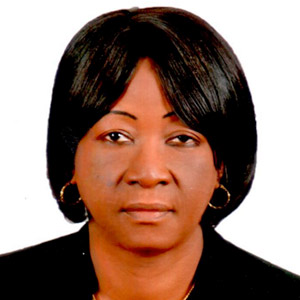
Financial Economist and Environmentalist, Alimata Kone started her professional career at International Monetary Fund (IMF) in Washington DC (1982-1985), then in Côte D’Ivoire (Ivory Coast) at National Investment Bank (BNI) (1985-2010). She represented her country at Global Environment Facility (GEF)(1992-2023) and also acted as GEF Council Alternate for West African Coastal Countries(2022-2023). Actually Vice President for African Federation of Soroptimist International (SIAF)(2023-2024) and recently 2nd Vice Governor of the Autonomous District of Denguele in the north of the country.
She will be defending her Executive Doctorate of Business Administration (EDBA), in March 2024 on the topic “Circular Economy and value creation, case of used vehicles in the Ivorian context” under the direction of Professor Sébastien Liarte, professor at Université de Lorraine.
Thesis Direction
Pr Sébastien Liarte
Thesis Title
The circular economy and value creation: the case of second-hand vehicles in the Ivorian context.
Abstract
Despite the competitive advantages offered by used vehicles, they are a source of environmental problems that partly explain their “expulsion” from exporting countries, which apply a wide range of socio-political and environmental instruments, but also export these resources to countries in the South.
In developing countries, these vehicules constitute a resource for economic activities involving several players from different socio-professional categories, particularly those with low incomes and precarious living conditions. The later need to extract value from them to improve their living conditions in the different socio-economic, political and environmental contexts associated with the exploitation of these resources, generally perceived as “waste” in the South.
Faced with this paradox of protecting the environment and preserving used vehicles value chains, what can be done?
In view of this situation, the circular economy (CE), which “runs parallel to sustainable development, in the trajectories of industrial ecology, and environmental economics, which does not call into question the dominant neoclassical economic model (Micheaux and Aggeri, 2016; Le Gouvello, 2019)” presents itself as the best alternative for finding the compromise between economic activities and sustainable development.
But is the circular economy a source of value creation for developing countries like Côte d’Ivoire?
The study combines qualitative and quantitative methodological approaches to answer these questions. It draws on the definition of CE adopted by Kirchherr et al. (2017) and on the theory of Korsunova et al. (2022), to show that all activities in the life cycle of used vehicles present CE practices that create economic, environmental and social value. It proposes strategies for increasing circularity in the processes at play in Abidjan’s scrap (or vehicle graveyards). The study formulates managerial recommendations and sets the scene for a broader study that will seek to map the entire UV cycle and identify priority cycles whose completion would create even more value.

